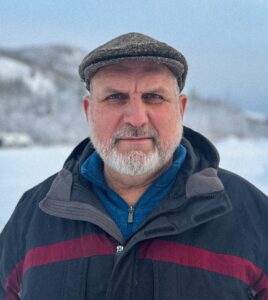I am reading Pilgrim at Tinker Creek this year, the 50th year of its publishing. I come away with lines like, “It snowed all day yesterday and never emptied the sky” or “the earth absorbs and releases heat slowly, like a Leviathan breathing.” And words like “quince” let me know Annie Dillard’s vocabulary is vast. (: a golden or greenish-yellow, hard, apple-shaped fruit of a small tree (Cydonia oblonga) of the rose family, used in preserves . . .)
I am in the first half and can’t get away from the geography. Malcolm Muggeridge says exactness can hinder meaning, even truth. I find the same when I try to analyze and find exactly where Annie was as she wrote. The place has changed and it is not obvious where she perched to view the valley, though the wonder of google maps helps me get an idea.
The geography matters because I’ve been there. Tinker Creek bordered the home where we lived for 5 years. I had never read the book nor heard of it, but I spent a lot of time working near Dillard’s vantage points. When I first realized this I wondered why it mattered. Is this mere fascination with the celebrity of a book and its author?
Maybe. But I’ve always loved books, and books about thinking and wondering and trying to see carry all the more value. Throw in a Pulitzer and you have my attention.
I can’t spend this whole year reflecting on the geography, but the book is nothing without it, and I keep wondering what it means. Hundreds of families have lived along Tinker Creek. What did they see, what did they know? Did any of them think about – not just see – the starling flock that filled the sky. Odds are high they never watched a beatle eat a frog. For them – for the bulk of us – life and trees and birds and small islands are barely there.
Comes the old philosophy saw: “If I’m not there to hear it, was there actually a sound?” Or for non creek-dwellers like me and most others, “If I didn’t stop to watch and listen, did it really happen? Was the Creek even there?”
We take life for granted and then we die. We cry for meaning and miss the clues all around us. Thinkers throughout time speak of something we call natural law: life reveals some fixed things if we give honest attention to how it is put together. Annie knew this better than most and is trying to tell us what the Creek taught.
“It’s just one person’s experience,” comes the worn rejoinder. “And why the worse for that?” one might reply. Besides, are you going to do the work of observation? Am I? As my best-ever teacher said about literary analysis: “You don’t know what is there until you know what is there.” Annie was finding out what was there so she could share it with the rest of us.
So I’m left settling in to this book, thinking of existence, and the basic questions rise: What makes a person who they are instead of someone else? How is another’s experience different, and do I share in it at all? Does our sharing transcend time? What has awareness to do with wisdom? Can wisdom be had without effort?
Annie’s reflections can help us even though we are not her and had nothing of this experience. That much seems obvious. But for myself, I can’t help being lost in the mystery as I remember trudging that same creek bank, busy with tasks at hand, missing the trees for the forest. As I think of the ‘trees’ Annie saw that most of us miss, I see frequent mention of shadows, shades, light ever-present and life-giving.
I wonder about the shades and the miracle of light the photographers, as opposed to logographers, rely upon for their magic. And I know Annie mimics their craft when she sees the light and speaks of its wonder. By my reckoning I’m a novice in trying to think like this book, but I’m leaning in, and I see something in the dim light. Take a moment to see, to really look, and you’ll learn something. You’ll see what is really there. You’ll see things you had no idea were there at all.
Like Annie often does, I hear the echo of Scripture:”If you have ears, listen!” One might say “If you have eyes, look!” Few admonitions are more wise and Dillard took the advice. This book is an how to manual, a first-class “Watching for Dummies.” I’m looking forward to the rest of the journey.

Randy Huff and his wife lived for 5 years in Roanoke (Hollins) where they raised 2 sons. Randy served as Dean of Students at a Christian school and then worked in construction. For the last 8 years he has served as pastor of a church in North Pole, Alaska.